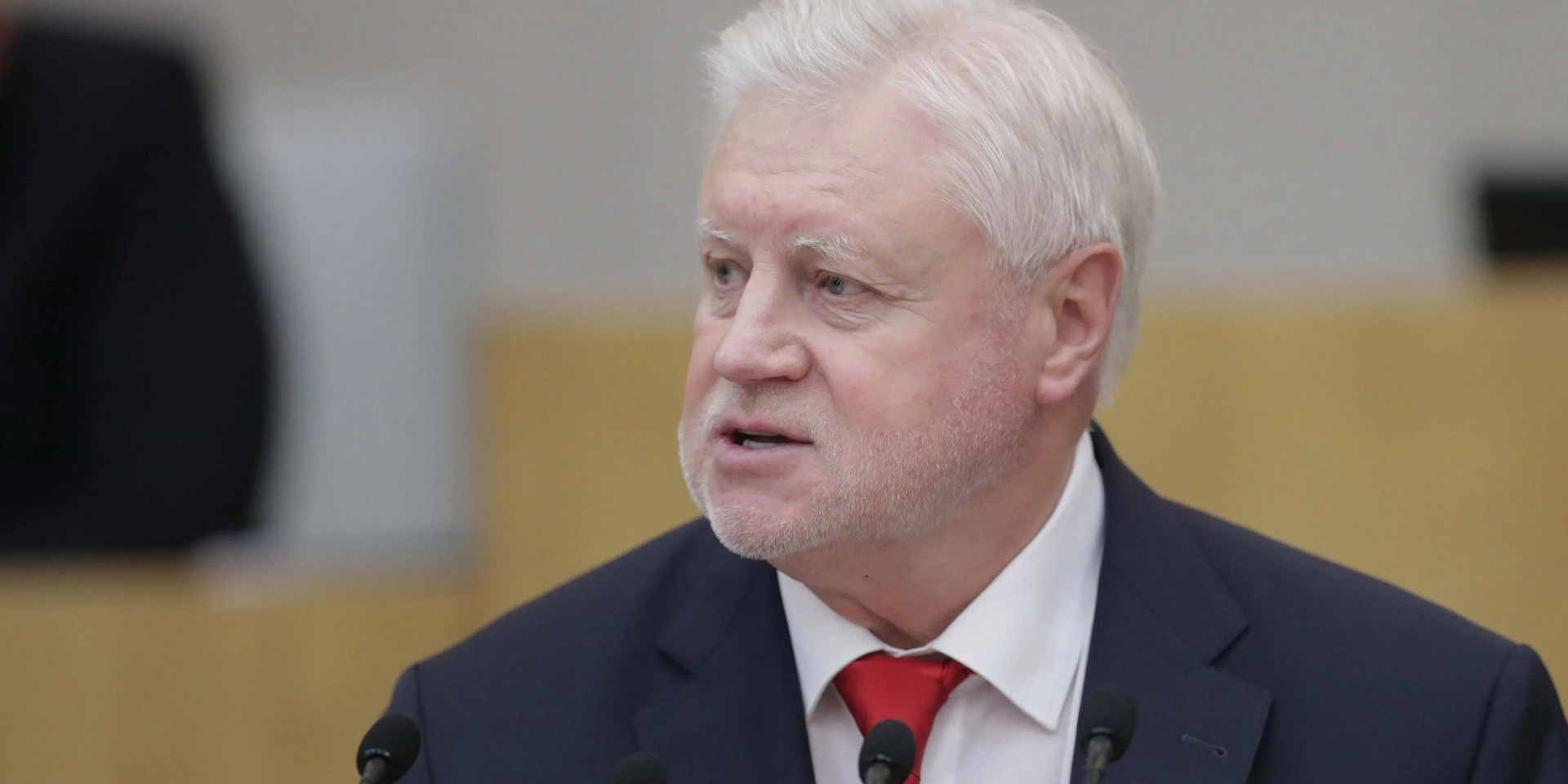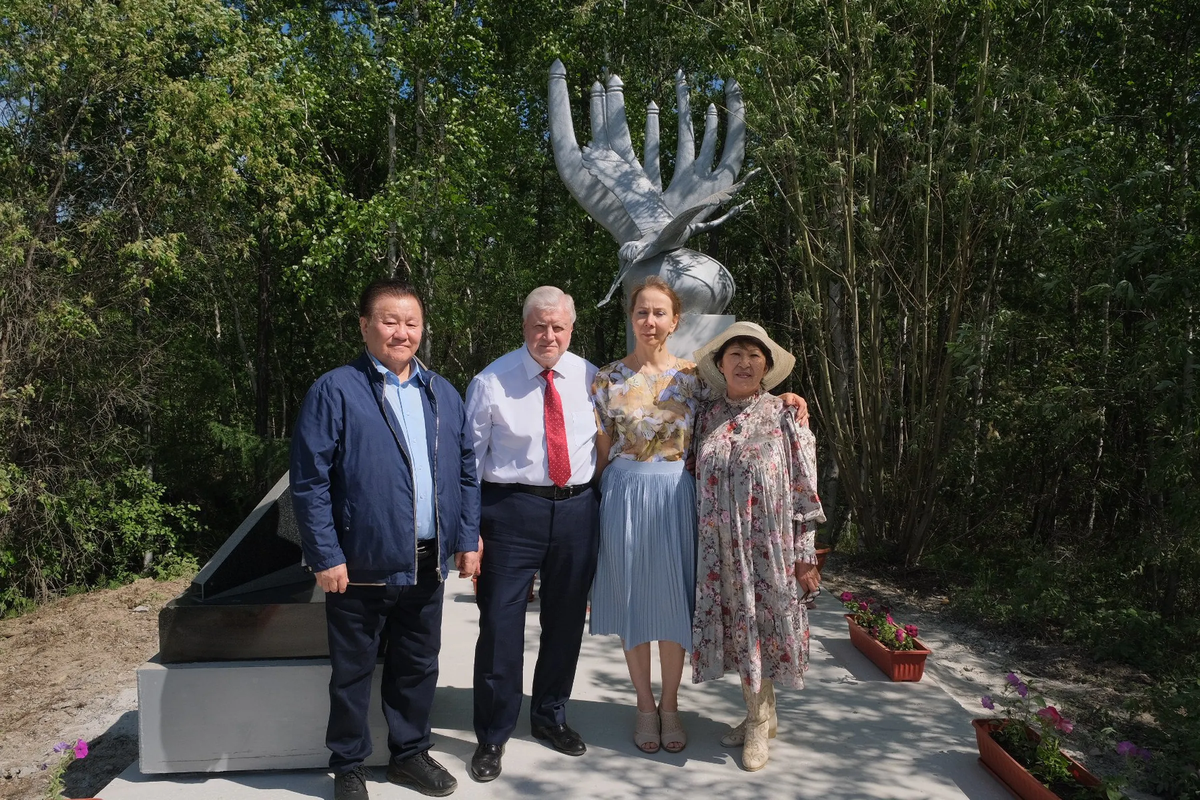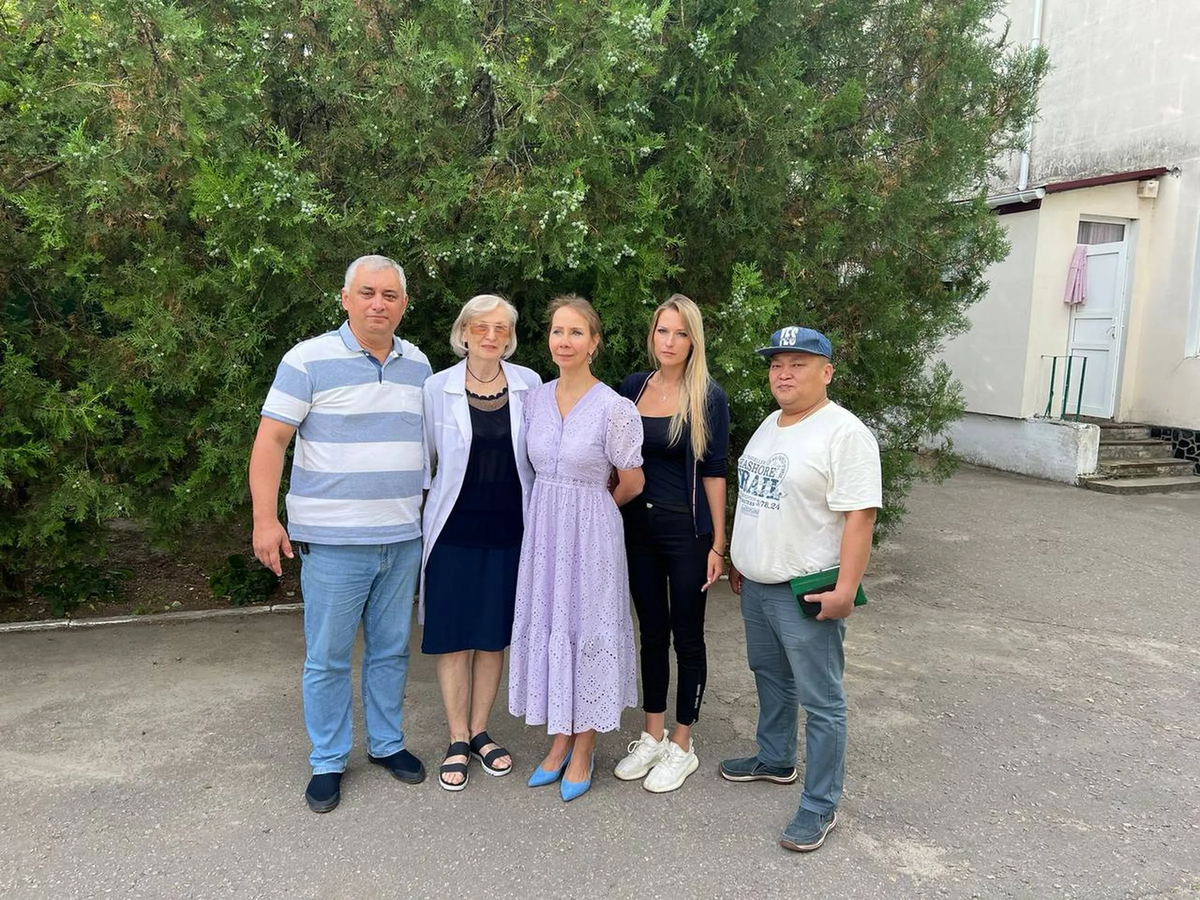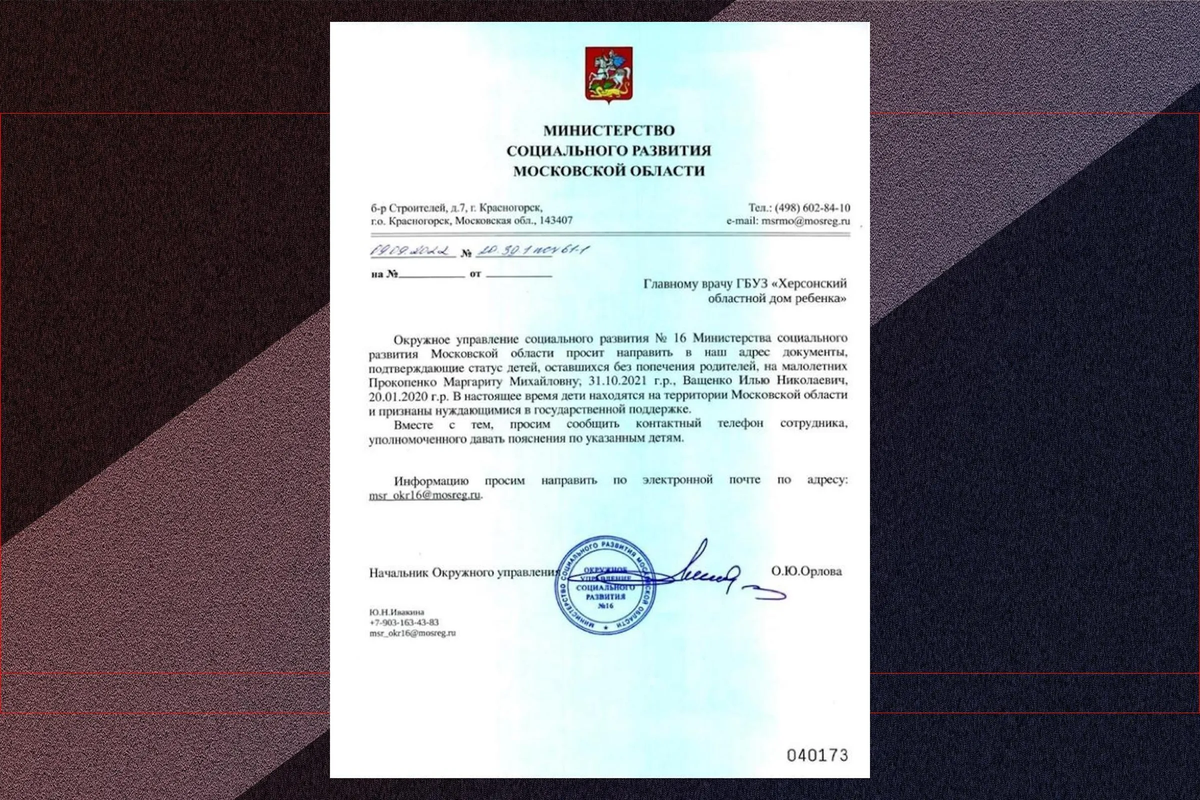How Russian Parliamentary Leader Sergey Mironov and His New Wife Adopted a Child Kidnapped from Ukraine and Changed Her Identity
An investigation by IStories

“My biography is transparent, there are no lacunae in it,” — so 70-year-old MP, leader of the party Just Russia Sergey Mironov says about his life. He actively supports the war in Ukraine, talks about the “pros of the special military operation” and the “brutality of the bloody Kiev regime,” and his faction in the Duma proposes to recognize Ukraine as a terrorist state.
But actually he has at least one lacuna in his biography. IStories has been able to obtain documents that Sergey Mironov and his wife adopted a child taken from Ukraine. 10-month-old girl Margarita Prokopenko was in an orphanage in Kherson during the occupation of the city by the Russian army. From there she was taken to Russia and secretly changed her name and citizenship: so she became Marina Mironova of Russia.
This is the first documented case of adoption of a Ukrainian child by a Russian politician of such rank. According to the lawyers we interviewed, from the point of view of international law, this can be qualified as a war crime and is considered genocide.
The wedding
In mid-June 2022, Sergey Mironov came to the Republic of Yakutia. He visited the republican national holiday “together with his wife Inna”, a local media outlet reported. In the photo there is Inna Varlamova posing with the deputy as his new chosen one. Four months later, in October 2022, Mironov and Varlamova officially married. Publicly they did not report about the wedding. For him, this marriage was the fifth, and for her — the fourth.

Inna Varlamova, 55, was born in the Kirov Oblast. She has been working in the government since 2005. Varlamova worked in the Federation Council for more than nine years, and since 2015 she has been working in the State Duma apparatus. In the VII convocation, she was an assistant to MP Nikolai Ryzhak, Mironov’s Just Russia party mate. Varlamova and Mironov have known each other since at least the fall of 2019 — that is when they started appearing together in photos. By that time, Mironov had already officially divorced his previous, fourth wife.
The kidnapping
At the end of August 2022, Inna Varlamova arrived in the Kherson Oblast together with Mironov’s first deputy in the State Duma, Yana Lantratova. They did not leave alone. The local occupation authorities issued a power of attorney for them to take out two children — 10-month-old Margarita Prokopenko and two-year-old Ilya Vashchenko, Hromadske reported. These children lived in the Kherson orphanage until the start of the full-scale war.

At the time of Varlamova and Lantratova’s arrival, Margarita was being Margarita was being healed of bronchitis at the Kherson Regional Children’s Hospital, told Natalia Lyutikova, head of the hospital’s pediatric department.
According to her, Mironov’s wife came to the hospital not alone, but with Tatyana Zavalskaya, who was head of the local orphanage appointed after the occupation of Kherson. Lyutikova said Varlamova was introduced to her as “the head of children’s affairs from Moscow.” The women examined the children and were satisfied with their health and living conditions. After that, Zavalskaya began calling daily to demand that the children be discharged, Lyutikova said.
“When I asked why I had to discharge sick children, Zavalskaya said that the woman had chosen them and would take them to Moscow, everything was already ready and there were tickets,” the hospital employee said. The doctors managed to postpone the discharge only for a week.
The day after the discharge, Margarita and Ilya were taken away from the orphanage. Officially, the children were taken to Moscow for “examination, determination of further medical treatment and rehabilitation.” It was just over two months before the Ukrainian army liberated the city.
The adoption
A week after being taken from Ukraine, Margarita and Ilya ended up in the Moscow Oblast. This is evidenced by the request that the department #16 of the Ministry of Social Development of the Moscow Oblast sent to the Kherson orphanage in early September 2022. The office asked to send documents that confirm that Margarita and Ilya were left without parental care. “At present, the children are in the territory of the Moscow Oblast and are recognized in need of state support,” — stated in the document.

To adopt a child in Russia, you need to apply to the court. These cases are considered under a special procedure. In November 2022, such a case was considered in the Podolsk City Court of Moscow Oblast. The interested party was Inna Varlamova, and the applicant was the department #16 of the Moscow Oblast Ministry of Social Development, the same department that had requested information about Margarita and Ilya from the Kherson orphanage.
At the IStories disposal there are documents that reveal: a month after the court decision, in December 2022, Sergey Mironov and Inna Varlamova adopted Margarita Prokopenko, taken from Kherson. She was just over a year old. At the request of the adopters, the personal data of the child can be changed, which was done: the girl became Marina Sergeevna Mironova. Not only her name and parents were changed, but also her place of birth: instead of Ukrainian Kherson, Podolsk near Moscow is now listed.
A source familiar with Margarita and Ilya’s situation told IStories that Margarita’s biological mother has been deprived of parental rights and her father is dead, but she has other relatives. Ilya’s fate is not completely known. IStories found that only a year after his deportation, in September 2023, he received a new birth certificate. From it it follows that Ilya is in the Moscow Oblast.
The crime
Adopting deported Ukrainian children in Russia is a crime from the point of view of international law, lawyer Maria Chashchilova explains. “This is considered genocide and violates paragraph (e) of Article 2 of the Convention on the Prevention and Punishment of the Crime of Genocide: ‘forcibly transferring children of the group to another group.’ These children often have relatives or guardians in Ukraine who have lost contact with them, and in the case of children from orphanages, the guardians are officials of these institutions. Under international law, the parties to the conflict must provide relatives and guardians with information about the missing ones and assist in the search for them.”
According to Chashchilova, the legal consequences for the adoptive parents are difficult to predict, but it is possible that the International Criminal Court in The Hague (ICC) may issue a warrant for their arrest. In March 2023, the ICC issued an arrest warrant for Vladimir Putin and Maria Lvova-Belova on charges of deporting Ukrainian children to Russia.
Previously, no publicly confirmed cases of adoption of children taken from the occupied territories of Ukraine to Russia were known. The Russian side only recognized the removal and transfer of children under guardianship to Russian families. IStories reported that deported children are entered into the all-Russian orphan database. According to our calculations, by the beginning of the summer of 2023, there could be almost 2,500 orphaned children from Ukraine in this database.
Children’s Rights Commissioner for the President of Russia Maria Lvova-Belova has repeatedly said that Russians cannot adopt children from the occupied territories of Ukraine. “There is common talk of adopting children born in the DPR, LPR and Ukraine. I can assure you that this form of substitute family we do not have at all. All children are placed under guardianship. <...> It is a priority for us that children retain attachment to their land, that they have the opportunity to communicate with blood relatives,” Lvova-Belova said.
If a deported child is adopted, it will be extremely difficult for relatives or guardians in Ukraine to return him/her. Adoptive parents get the same rights as blood parents and can change the child’s personal data, as happened with Margarita. Adoption can be canceled only through the court, and the grounds for cancellation can be cruel treatment of the child, alcoholism and drug addiction of the adoptive parents or lack of normal conditions for the development and upbringing of the child. Being wanted by the International Criminal Court for genocide is not included in this list.
“These children have no parents, no one will take care of them. And their homeland was stolen from them as well. Nobody had the right to do that. These are not things, these are living people, these are children!” — says Natalia Lyutikova, a doctor at the Kherson Regional Children’s Hospital.
IStories sent requests to Maria Lvova-Belova and Sergey Mironov. At the time of publication, the editorial staff had not received any answers. Margarita’s representatives told IStories that they also sent a request to Lvova-Belova’s office to return the child to Ukraine.
On November 18, the National Security and Defense Council of Ukraine imposed sanctions against Inna Varlamova.
Editors: Alesya Marokhovskaya, Roman Anin